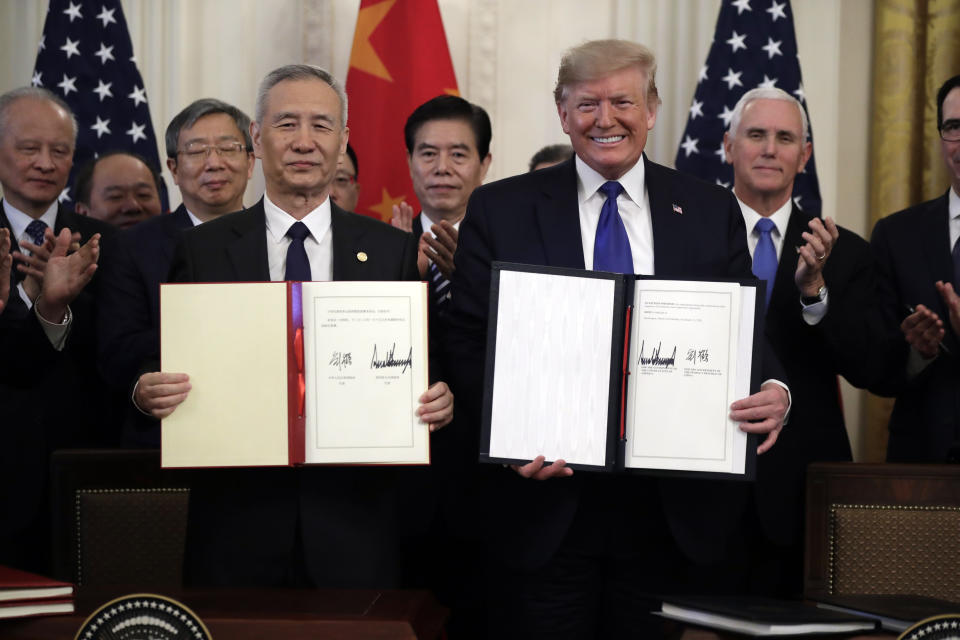China will replace the US as the world’s biggest superpower by 2030: UBS survey
President Donald Trump has been cheering his new trade deal with China, calling it “momentous step” toward “a future of fair and reciprocal trade.” But global investors increasingly see China itself as the future.
A new UBS (UBS) survey finds 57% of global investors predict China will replace the U.S. as the world’s biggest superpower by 2030. A majority agrees with that sentiment in every region except the United States, where only 47% expect it will happen.
“We're in a world where economic growth is more dispersed than it used to be,” Michael Crook, head of Americas investment strategy at UBS Global Wealth Management, tells Yahoo Finance’s The First Trade. “On the flip side, what we've seen is from a globalization standpoint is really we've hit peak globalization, so we don't expect that trend to continue even more strongly that, like it has over the last 20 years. But that does change the face of geopolitics and really how we have to think about allies across the world.”
“It certainly has an impact both on business owners in the U.S., but also a lot of the investors that we work with overseas,” he told Dan Roberts and Seana Smith.
In 2017, President XI Jinping laid out his vision to turn China into a “great modern socialist country” by 2050.

“Chinese people will enjoy greater happiness and well-being, and the Chinese nation will stand taller and firmer in the world,” Xi said at the time.
But the Chinese economy has been slowing, posting an annual growth rate of 6.1% in 2019, the slowest pace in nearly three decades. And Xi reportedly has been placing financial experts in struggling provinces to help boost economic prospects.
That may be part of the reason why Trump is signaling he’s not worried about losing superpower status to China.
“Our relationship with China has probably never been better. We went through a very rough patch, but it has never, ever been better,” he said in Davos at the World Economic Forum.
And that trade deal may be part of the reason why UBS found investors have turned so bullish — 60% are now optimistic about the world economy, with the number topping 68% here in the U.S.
“They're telling us that some of the risks that we had a year ago are not as large or they don't loom as large,” Crook said. “Political risks, trade risks, certain policy risks that they were worried about have dissipated, at least a bit.”
Read more:
Why we won't get a Phase 2 trade deal 'until sometime in 2021'
Why Trump’s China trade deal could save Boeing
Trump should 'absolutely' get credit for changing the China conversation: analyst
Read the latest financial and business news from Yahoo Finance
Follow Yahoo Finance on Twitter, Facebook, Instagram, Flipboard, LinkedIn, YouTube, and reddit.

 Yahoo Finance
Yahoo Finance 